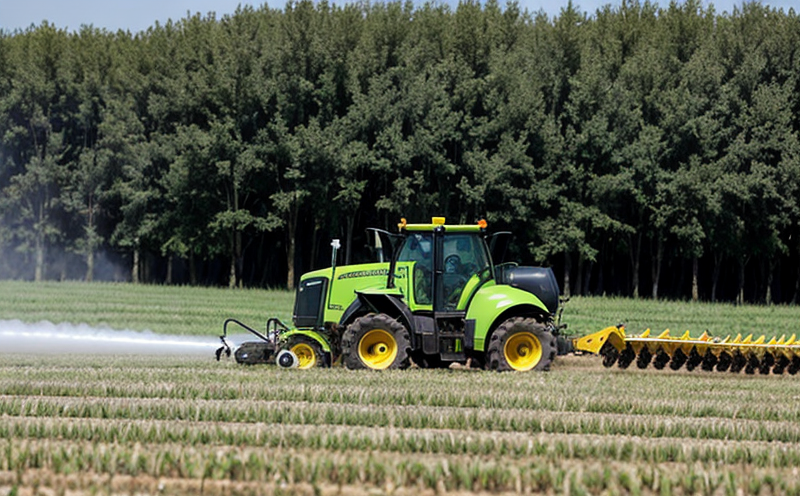Hexaconazole Residue Testing in Crops
The need to ensure food safety and regulatory compliance has never been more critical. Hexaconazole residue testing plays a vital role in the agriculture sector, particularly with the increasing use of fungicides in crop production. This service focuses on detecting hexaconazole residues in crops to guarantee that they meet international standards for human consumption.
Hexaconazole is a broad-spectrum fungicide used widely in agriculture, primarily to control fungal diseases. However, its extensive application can lead to potential residue levels exceeding safe limits. Consequently, accurate and reliable testing is essential not only for quality assurance but also to prevent contamination that could affect consumer health.
The procedure involves the extraction of hexaconazole residues from crops using solvent methods followed by analysis with advanced analytical techniques such as gas chromatography-mass spectrometry (GC-MS) or liquid chromatography-tandem mass spectrometry (LC-MS/MS). These methods provide high sensitivity and selectivity necessary for accurate quantification.
Our laboratory adheres strictly to international standards, including ISO 17025, ensuring that all tests are conducted under controlled conditions. The testing process includes detailed sample preparation steps followed by rigorous analysis to ensure precision and accuracy in results. Compliance with these stringent protocols ensures reliable data which is crucial for making informed decisions regarding crop safety.
Our team of experts uses state-of-the-art equipment calibrated regularly according to manufacturer specifications and industry guidelines. This allows us to deliver consistent, high-quality test results every time.
The importance of hexaconazole residue testing cannot be overstated given its prevalence in modern agriculture practices. Accurate measurement helps maintain the integrity of food supply chains while safeguarding public health from harmful contaminants.
By choosing our service for hexaconazole residue testing, you can rest assured that your crops are being analyzed with the highest level of expertise and precision. This will help ensure compliance with regulatory requirements and contribute to building consumer trust in agricultural products.
Industry Applications
| Application | Description |
|---|---|
| Farmers | To verify compliance with legal limits set by various jurisdictions. |
| Retailers | To ensure product safety before entering the market. |
| Regulatory Authorities | To enforce and monitor regulations related to pesticide residue levels in crops. |
| Research Institutions | To study efficacy of fungicides and their impact on crop health. |
| Crop Type | Residue Limits (ppm) |
|---|---|
| Wheat | 0.02 ppm |
| Rice | 0.05 ppm |
| Corn | 0.1 ppm |
| Soybeans | 0.03 ppm |
Quality and Reliability Assurance
The success of our hexaconazole residue testing lies in the robust quality management systems we have implemented within our laboratory. Our processes are designed to consistently deliver accurate results, ensuring that each test adheres strictly to established standards.
We follow a rigorous protocol starting with sample collection and handling procedures that minimize contamination risks. Samples undergo thorough preparation before analysis using appropriate methods tailored specifically for hexaconazole residue detection. This includes extraction techniques optimized for different types of crops and post-extraction clean-up steps essential in reducing matrix effects.
Our laboratory personnel are trained extensively on the latest technologies and methodologies used in pesticide residue testing. They keep up-to-date with advancements through continuous professional development programs. This ensures that our team remains at the forefront of scientific knowledge, applying cutting-edge practices to deliver precise results.
The equipment utilized in these tests is calibrated regularly using certified reference materials provided by trusted organizations such as National Institute of Standards and Technology (NIST). Regular audits conducted internally and externally further reinforce the reliability and accuracy of our testing capabilities.
Our commitment extends beyond just providing reliable test outcomes; it encompasses ensuring that all stakeholders receive clear, concise reports detailing findings along with recommendations where necessary. This transparency fosters trust among customers who rely on us for critical decision-making processes regarding crop safety.





